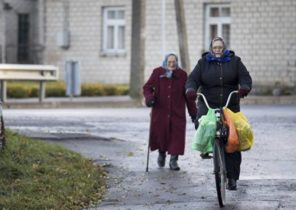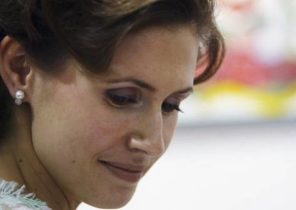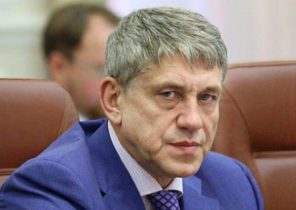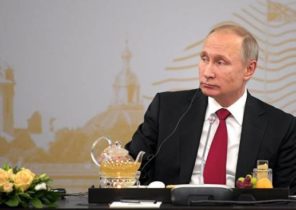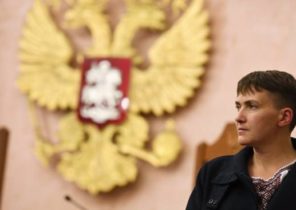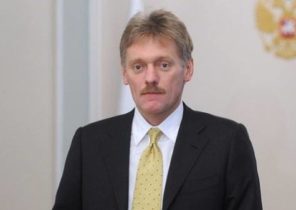The Russian government is adhering to the model of state capitalism, in times of coronaries shows miserliness in relation to small and medium entrepreneurs and their employees. They are outraged. And it will definitely affect the economy of the country and its society.
Alex entered in the company of his one-day working week. Greater the amount of time he and his seven employees in the last weeks is simply not enough work —business almost stopped.
51-the summer businessman from Moscow, who refused to give his name, sells festive accessories — carnival costumes and masks for Halloween, accessories for theme parties, “tools” for magicians. Holidays are not held, the demand for the goods from China or the UK tends to zero.
“For the sake of image, and not for the money I provide customers who still order something,” said Alex over the phone. He wants to be considered a reliable partner, especially in difficult times.
However, the majority of its customers are shopping, which at the end of March due to the outbreak of coronavirus was closed for a long nine weeks. Firm of Alex was as a company engaged in the wholesale trade. And exactly this was a problem for him: in fact it is time for almost nothing sold, but technically wholesalers you can continue to work. Thus the face of the Russian state it is not considered a victim of the crisis and can not count on financial support.
Universal holidays by employers
At the end of March, when close eye on the spread of the coronavirus in Russia has become impossible, Russian President Vladimir Putin took an unexpected decision: he declared a state of emergency, we do not forbid people to go out, but declared “non-working week”, thus prohibiting employers from dismissing employees. This regime was extended twice and lasted a total of six weeks until may 12.
Measure from the beginning had a lot of questions, especially Putin’s press Secretary has announced that people who have the ability to work remotely has to do it. Businesses with “essential” activities, grocery stores and pharmacies remained open all the time. A leading role in the fight against the pandemic was entrusted to the mayor of Moscow Sergey Sobyanin, who also announced the city’s tough “isolation”.
It only ended 9 June, but the stores were allowed to open on 1 June. Gradually resumed a variety of services, and on 16 June they were joined by cafes and restaurants. Meanwhile, Putin said that gives governors the right to make their own decisions about restrictions in their regions.
However, all these measures had one common point: they lacked legal capacity. If it was officially declared a state of emergency, the business would have the right to demand from the state compensation for losses incurred.
“It’s not a crisis, it’s murder!”
Therefore, many representatives of the business community are still outraged by the actions of the Kremlin. “Paid vacation” meant not that other, as the need for employers to shoulder all the costs themselves, without having opportunity neither to generate profits nor to lay off employees. The most painful this impact was for small and medium business, especially considering the fact that the majority of enterprises of sphere of services: cafés and restaurants, travel agencies, parts stores, fitness clubs, hairdressers. Almost none of them had the financial safety net.
On behalf of many Moscow restaurateurs, whose customers for the most part — the representatives of the urban middle class, co-owner of several food establishments in the capital Alexei Vasilchuk said in an interview for the YouTube channel “Russian rules!”: “It’s not a crisis, it’s murder!”
The first “packages of care” entered entrepreneurs too late and was, in fact, useless. According to the officials, small businesses and individual entrepreneurs account for only about 20% of Russia’s GDP, but they provide jobs for about 40 million Russians. And it is in the major cities of the providers provide comfort to their inhabitants.
First, we are talking about the delays on payment of taxes and social contributions, then preferential loans, in particular, to continue payment of wages in the form of official minimum wage (12 130 rubles, in terms of 165 francs), which, however, in most enterprises is only a small fraction of real wages. And in mid-may, the Russian government finally began to pay entrepreneurs money directly is also some semblance of concessional loans in the same size. This sum relies the officially registered unemployed.
Many words, few specifics
Economist Alexander Suslin from the Moscow research Institute of Economic Expert Group in an interview with our magazine called public support intended for small and medium businesses, “clearly insufficient.” And this applies not only to the amount promised support, but its really get. According to Susleni, very poorly organized mechanism of delivery of aid. “First aid was in name only, and many citizens and small businesses in the first month were left without any support,” she said. The most popular measure of this support was one of the last of Putin’s promises given to them at the end of “vacation”: for each child up to 16 years, the state paid a lump sum to the citizens of 10 thousand rubles (136 francs).
The turning point for many companies was the publication of the list of industries recognized as the main victims of the epidemic covid-19. Those whose category is in the companies Register at least one letter did not match the wording in the list, were left with nothing. Even if businesses were closed by order of the officials, this does not mean that they will get the announced compensation.
In such a situation was the Swiss Walter Denz (Denz Walter), head of the language school Liden & Denz., which has offices in St. Petersburg, Moscow and Irkutsk. Since mid-may, they remain closed, however, some courses are taught via the Internet. The tourist Bureau also does not work. While staff salaries and rent for premises, of course, have to pay.
The Denza has gone through not one crisis — he is engaged in business in Russia for almost 30 years and for a long time did not have high expectations from the state. But it outraged that authorities publicly announce support, and then look for any formal reasons to refuse payment. He thinks it’s cynical when you consider that employers for as much as six weeks “vacation” had to bear the entire burden.
Misconceptions of politicians
Alex shares this opinion. “In Russia we do not pay high taxes and, therefore, not expected of a state of something very special,” he said. But the fact that during this crisis, he will not receive anything at all, it is very disappointing. “For years we were told that the state saves money in the national welfare Fund (NWF), in the event of a crisis, we could safely survive. But now we have nothing perepalo”, — he stressed.
That the authorities think only about “their” state enterprises and corporations owned close to the Kremlin magnates, and leave in the lurch simple citizens, instead of taking from the “piggy Bank” money received previously for energy exports, say many. However, the economist Suslin explained: it is impossible from the Fund to Finance anti-crisis packages, especially as there is now stored not only liquid assets. In addition, it is very useful to the government in the future to offset the budget deficit in the coming years.
The fact that the state abandoned to their fate, a small business is not only related to its share in Russian GDP. Alexander Suslin considers that the authorities still have outdated notions about entrepreneurs, typical for the Soviet times. “They still did not understand that small business is not “speculators”, as once in the USSR, and the people paying taxes like large corporations”. So the enterprises of sphere of services, trade and catering power is considered as secondary.
However, according to Susleni, senior management does not understand that the crisis caused by the pandemic differs from the previous one. This, according to her, is literally about survival, and should not make any difference to what industry is the company, providing citizens with jobs. While many salaried employees and individual entrepreneurs engaged in the above industries for the last two months have simply run out of money — even to cover the most urgent needs. Entrepreneur Alex had to cut staff salaries to the minimum.
Insufficient attention to foreign companies
Foreign companies investing in Russia, have to fight for the attention of the authorities. Swiss Andreas Bitzi (Andreas Bitzi), working in the consulting field, participates in the activities of the European business Association (Association for European Businesses — AEB), representing the interests of foreign small and medium business in Russia.
He is surprised that the Russian authorities pay within the Association of companies little attention. In fact, foreign to them is only capital, and the enterprise itself was in accordance with the Russian legislation, provide jobs to Russian citizens and pay taxes and other fees. Many of them play an important role in such a welcome for the Russian leadership to diversify the economy and its technological development.
If these companies now feel that they are treated worse than local competitors, this will affect their future investment decisions will be a signal to potential new investors. According to Bitti, foreign enterprise in Russia in a whole “think positively” and their previous decisions were made with an eye for the long term. However, even before the crisis the authorities did not make life easier for foreign investors (not least under the pressure in connection with the necessity of localization of production).
Alexander Suslin, providing consulting services, in particular, the Russian ministries, pessimistic. “If the government does not increase the size of the financial support of the population, and the economic aid will be delivered to only certain industries and companies, to cover a wave of bankruptcies of small and medium enterprises, unemployment, and, in addition, will begin the growth of the shadow sector of the economy,” she said. Especially difficult situation for industries such as catering, services and tourism. The frustration over the lack of government support can also increase the mood of protest. The already low credibility of the state continues to evaporate.
Hold liberal views former Finance Minister and current head of the accounts chamber Alexey Kudrin also sees risks for the banking system in the event of a wave of bankruptcies. If you start the collapse of the middle class with relatively high incomes, the budget of separate regions and the whole state will lose tax revenues.
The purchasing power of the population declined before the crisis
Moscow small businessman Alexei, however, have not quite lost hope. “High season” in his industry in any case accounted for the fall, and by the time the worst could be behind us already — at least he hopes so. But he expects that at least until August will not be easy.
Everything else must add that the real incomes of the Russian population in 2014 has decreased significantly, and the middle class suffers not only from this triple crisis — local impact of the pandemic, the global recession and market drop of vital importance to Russia in oil prices and associated exchange rate of the national currency. Ten years ago, the purchasing power of the population was significantly higher, and in recent years it is noticeable that the people poorer. This moment, as well as the efforts of recent years to improve the transparency of the tax system and the VAT increase in 2019 before the current crisis reflected on the situation of small and medium business, especially in the regions.
Alex and the Swiss entrepreneur Walter Denz not going to give up. Denz, however, dissatisfied with the lack of clarity: “the Coronavirus is the poison, but now it will increase the impossibility of the normal planning and incomprehensible behavior of the authorities”. Neither don’t understand how after the crisis will be the ability of their clients. “I need to think about today said Alex. — What will happen tomorrow, let’s see — this is not the first crisis in Russia.”
